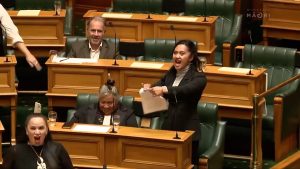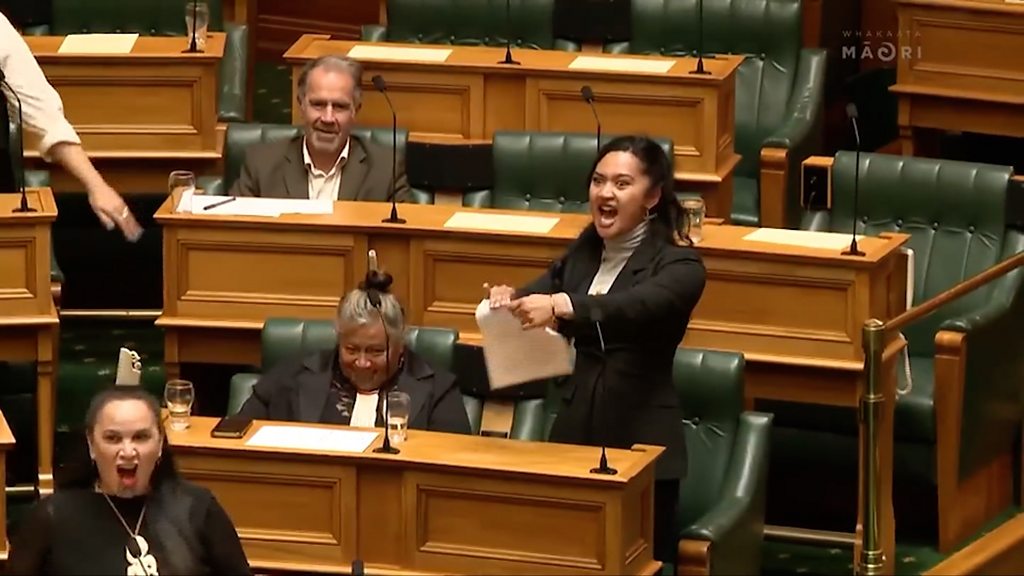New Zealand MPs Suspended After Haka Protest in Parliament
In a dramatic incident on 14 November 2024, three members of the Māori Party (Te Pāti Māori) were suspended from New Zealand’s Parliament after performing a traditional haka in the chamber. The incident has become a significant controversy in the country’s political scene, reflecting deep divisions over the future of the Treaty of Waitangi and the role of Māori culture in parliamentary debate.

What Happened?
The controversy unfolded during a parliamentary sitting when Hana-Rawhiti Maipi-Clarke, the youngest MP in the House, stood up, tore up a copy of the “Treaty Principles Bill,” and performed a haka. She was soon joined by two fellow Māori Party members, Debbie Ngarewa-Packer and Rawiri Waititi.
The protest was a dramatic expression of opposition to a piece of legislation that many Māori view as a direct attack on their rights and the promises made under the 1840 Treaty of Waitangi.
Disciplinary Action
Following the incident, the Speaker of the Parliament, Gerry Brownlee, suspended the sitting and called for a review of the incident by the Privileges Committee. Subsequently:
-
Debbie Ngarewa-Packer and Rawiri Waititi were suspended from Parliament for three weeks, losing their salaries during this period.
-
Hana-Rawhiti Maipi-Clarke received a one-week suspension.
This punishment is the most severe discipline handed down to members of the New Zealand Parliament in nearly 23 years.
Reactions and Debate
The Speaker and the Privileges Committee described the incident as “the most serious misconduct” in decades, arguing it disrupted parliamentary procedures and undermined the ability of the institution to operate effectively.
Some political parties supported the punishment, insisting discipline was necessary to maintain order and fairness in the legislative process. Others, however, criticized the ruling as excessively harsh and a violation of freedom of expression and culture. They argued that the haka is a form of protest deeply rooted in Māori tradition and should be recognized as a legitimate form of political expression.
Broader Impact
The incident highlights ongoing tensions in New Zealand’s political landscape about the role of Māori culture and perspectives in governance. It underscores a delicate balance between honoring traditions and maintaining order in a parliamentary context.
The controversy comes amid growing calls from many Māori groups to reassess and protect their rights under the Treaty of Waitangi, particularly in light of legislative proposals that may undermine those promises.
Conclusion
The suspension of the MPs underscores the deep divisions over the future of the Treaty of Waitangi and the place of Māori culture in the country’s political institutions. As the controversy settles, it leaves a key question for New Zealand’s future: how can a modern democracy make room for traditions, protest, and political expression while preserving order and fairness in its parliamentary procedures?
Read more:
Dịch Vụ Vận Chuyển Phụ Tùng Từ Việt Nam Đi New Zealand
Shipping service from Hai Phong to Austraulia

